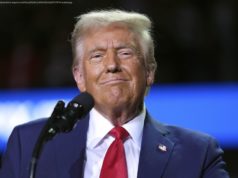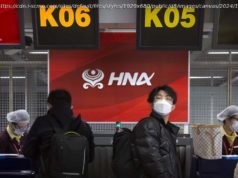Array
On Thanksgiving Day, 90-year-old Cardinal Joseph Zen, a Hong Kong priest, was convicted, along with five others, of failing to register a defunct charitable organization that tried to help pro-democracy demonstrators targeted by the regime.
Ostensibly, the charges stemmed from the group’s failure to submit paperwork to authorities. But Chinese people of faith and governments around the world understood the real message Beijing was sending when it arrested Fr. Zen, known as “the conscience of Hong Kong,” last May. The purpose of the prosecution, said U.S. State Department spokesman Ned Price, was to show that China’s government “will pursue all means necessary to stifle dissent and undercut protective rights and freedoms.”
Among the human rights that Beijing is most hostile to is freedom of religion. And how the government has compromised the Catholic Church is a case study in the difficulty of resisting its relentless efforts at repression.
In 2016, when Xi, China’s president and general secretary of the Chinese Communist Party, first announced his policy of “Sinicization” of religion in his country, the response of the Vatican was to try to accommodate Beijing’s leaders.
Although Pope Francis has generally avoided speaking about the subject – or about persecution in China at all – the pontiff has let it be known that he’s chosen to see Sinicization as similar to “inculturation.” It’s a term that emerged in the 1980s in answer to the church’s troubling history of forced conversions and cultural genocide. In so doing, Francis is drawing on a rich Catholic tradition, not limited to Latin America, and not limited to cultural depredations. It can be as benign as St. Patrick using the shamrock to explain the concept of the trinity to the Irish or allowing priests in China to wear traditional Chinese robes during mass. In a 1975 encyclical, Pope Paul VI stated that spreading the Gospel should entail bolstering existing culture, not subduing it.
Under Francis, the Vatican has latched onto this idea. “Let us not forget that a faith that is not inculturated is not authentic,” the pope told Latin America church leaders in 2021. It is that philosophy that the pope has tried to apply to China. In a rare 2019 interview with a Chinese Communist newspaper, Vatican Secretary of State Pietro Parolin asserted that “inculturation” and “Sinicization” can be “complementary” concepts that “open avenues for dialogue on the religious and cultural level.”
This, then, is the rationale guiding the 2018 pact between President Xi and Pope Francis. Forged in secret (its details have still never been made public), the arrangement gives the government a role in how church affairs are conducted, including the selection of Catholic priests and bishops in China. The quid pro quo, apparently, is that the Catholic Church is allowed to continue as a government-sanctioned institution in China.
“There is substantial evidence that the core of the agreement is ‘power-sharing’ between the Holy See and the communist regime,” Thomas F. Farr told RealClearPolitics. President emeritus of the Religious Freedom Institute, Farr said that Vatican diplomats naively believed such a pact would benefit the Chinese church, and that keeping the agreement hidden would ward off criticism long enough to demonstrate the agreement’s benefits to the church.






